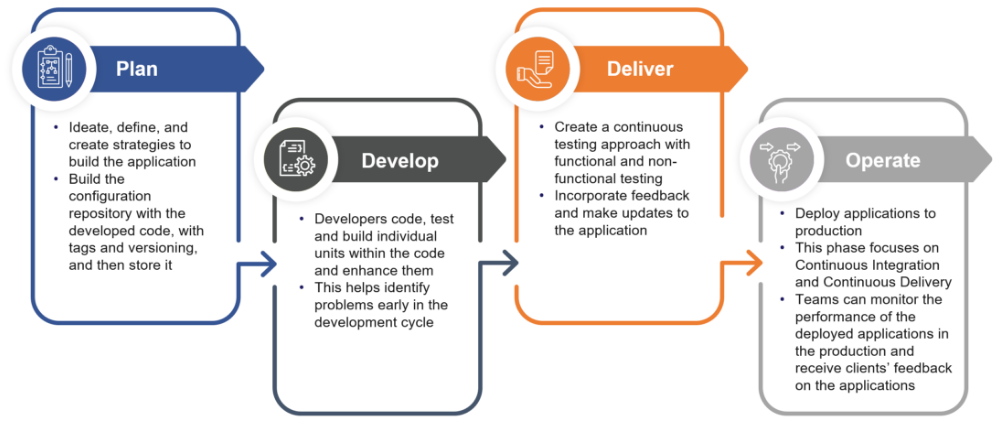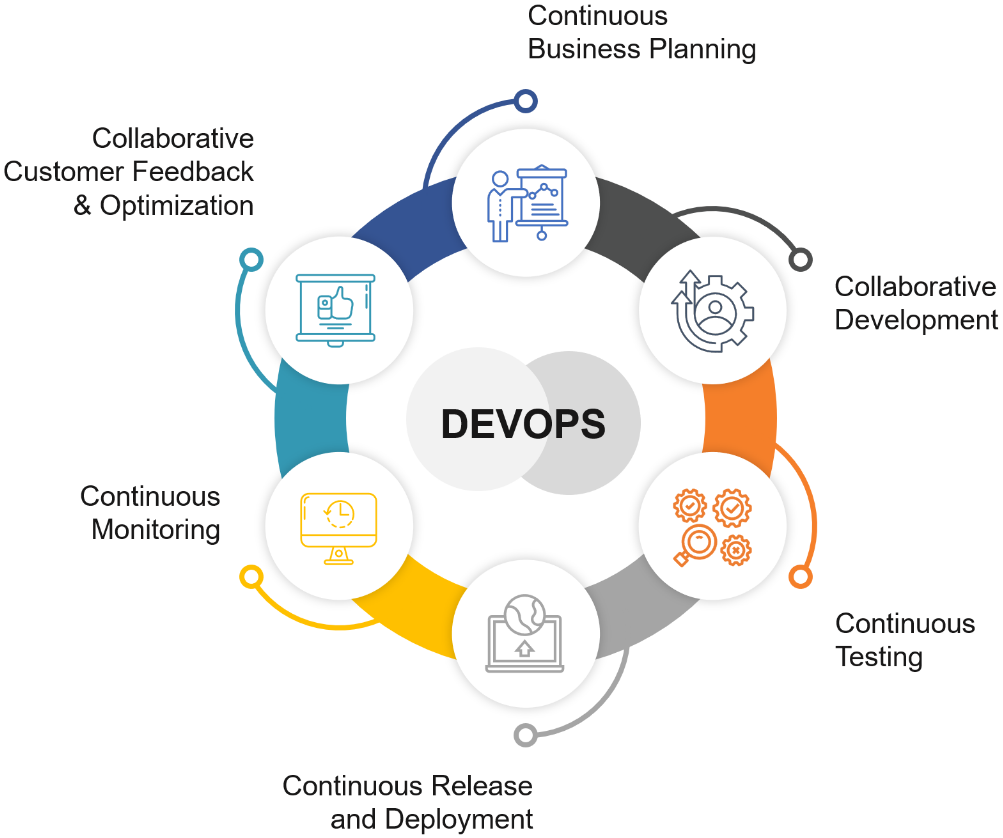In a world where business is evolving at the speed of thought, rapidly changing market conditions pose several challenges for enterprises across industries. Firms need to deliver products and services at lightning speed, remain competitive in aggressive and divergent markets, garner profits, enhance revenues, adapt to changing market and customer requirements, comply with new regulations or laws, and still deliver superior customer experiences every single time. Agility, experimentation and continuous innovation are today essential components to unravel new business value. No wonder then that organizations are increasingly relying on automation and digital technologies to meet these challenges successfully. They are looking for agility in operations, minimal human intervention, and reduction in errors.
With over 90% of global organizations having a digital first strategy in place or have planned, digital transformation is inevitable. However, for digital transformation to be truly successful, organizations need to embrace the “digital” state not just technologically or operationally, but also culturally. It entails a wholesale reinvention of business processes, and this requires overhauling significant portions of their legacy IT estates. Businesses need to embrace a more modern-styled architecture approach to development and delivery. One that can support delivery at a robust yet differentiated pace across various organizational components and divisions, while enabling innovation and operational efficiency at scale and speed. This is what DevOps does.
DevOps: Converging people, process and technology
To understand how the DevOps framework or approach helps organizations deliver with agility, let’s take a quick look into its evolution. Over the last two decades, application development was often looked at as a standalone process isolated from and misaligned with operations. Development and operations functions worked in silos and the continuous cycle of feedback and iterative improvement was missing.
While the previously used Waterfall or Agile methods had their benefits, they were not without limitations. The Waterfall methodology was linear, where all requirements for the software development process had to be laid out at the outset without flexibility to change during the development phase. The advent of virtualization brought with it the more popular Agile methodology of development. This approach is more flexible, allows products to get to market faster and enables better communication. However, the inflexibility and the lack of structure in this methodology too render it unsuitable for many complex development teams. Moreover, this methodology entails breaking projects into smaller tasks to help deliver faster, incorporate feedback, and manage dependencies. It is not effective during the testing and deployment phases as the development, quality and operations teams continue to work in silos.
Enter DevOps. The key motive behind DevOps is to break the silos between operations and development to enable rapid, automated and streamlined development processes—thus ensuring rapidity of release without compromising on quality.
The emergence of cloud services has further accelerated the need for and adoption of DevOps. The cloud has enabled easy and cost-effective processes, which can be easily interlaced across different environments, platforms, or complete services. Modern techniques leveraged in the implementation of cloud services, such as micro-services and even serverless architectures, highlight the need for DevOps capabilities, both in terms of faster time-to-market and continued support.
Stages of the DevOps lifecycle
DevOps influences the application lifecycle throughout its plan, develop, test and deploy phases. Each phase relies on and is related to the others and are not role specific. At each stage, there are several third-party tools available in the market to execute the framework.


Betting big with Azure DevOps
Azure DevOps from Microsoft is a Software-as-a-Service (SaaS) platform that offers users an end-to-end DevOps toolchain to rapidly develop and deploy software. Azure DevOps is an integrated offering of various services including Azure Pipelines, Azure Boards and Azure Repos, which includes cloud hosted private Git repository, Azure Artifacts and Azure Test Plans—all designed to provide the DevOps teams with powerful tools and enablers for rapid software development. Azure DevOps offers developers a host of features including continuous integration and deployment (CI/CD), superior dashboard control and configurable dashboard widgets, improved Git or distributed source control and Team Foundation Version Control (TFVC), advanced features to plan and track your work, integrated collaboration features, manual and exploratory testing options, and more.
Key benefits of Azure DevOps include:
How organizations are using Azure DevOps
Azure DevOps provides developer services, enabling teams to plan work, collaborate on code development, and build and deploy applications. Its collaborative culture brings together developers, project managers, and contributors to develop software allowing organizations to create and improve products with greater agility.
More importantly, Azure DevOps enables seamless application development. It has the capability to detect any challenges or bugs and supports collaboration with the developer in real-time. The platform offers several ways to arrest problems at every stage, ensuring continuous collaboration between the operations and developer teams. Through the various stages, Azure offers a variety of its own set of best-in-class tools.
Infrastructure as code is another use case. In the past, deploying storage, backup, virtual machine, or an application required manual intervention by the software teams. With Azure DevOps, developers can leverage code with templates and then store in the Azure Repository.
Every organization has its own set of compliance requirements and policies. For instance, an organization will define the devices to be used by employees, the operating systems, software, etc. These are then written into SOPs. With Azure DevOps, codes can be written to automate the compliance checks and alerts can be triggered for non-compliance.
With the help of Azure DevOps tools, migrating applications to the public cloud can be done leveraging automation tools and retaining the integrity of the data.
Wipro brings Azure DevOps to life
Wipro’s Azure DevOps practice blurs the distinction between development and operations so that businesses can effortlessly produce zero-defect code and high-quality systems. Our Microsoft end-to-end Azure DevOps capabilities help to set up automated pipelines to build, test and deploy software code to any platform. Wipro’s engineering teams focus on implementing the customer's solutions with Azure DevOps capabilities.
The Integrated Agile DevOps Platform, an end-to-end integration framework for continuous delivery, makes DevOps adoption repeatable and reusable while increasing productivity by as much as 20%. Our DevOps service includes DevOps Lab for Hire, Assessment Toolkit, Training-as-a-Service and DevOps Consultancy, which cut adoption time by 90%.
DevOps for the future
The future of the DevOps framework is promising and there are many more practical applications each day. DevOps methodologies are also changing with new tools and technologies coming in.
With a continuously shifting technology landscape, there is a need to change the workflows and tools of DevOps. As container-native and cloud applications become increasingly popular, newer and better tools will emerge. With these changes, developers will no longer be required to write code on their computers or install required tools. With a multi-cloud environment as a given, there is a need to create cloud native applications. The new platforms and tools, coupled with AI, ML and automation, organizations can foster true innovation.
To know more about the Wipro Azure solution, please get in touch with us at Azure-Marketing@wipro.com
Rajiv Kumar
GM & Presales Head - Cloud, Cloud & Infrastructure Services, Wipro
Rajiv has about 23 years of experience in the IT Industry. He has played a crucial role in developing next-generation transformative offerings like Azure Stack and rapidly growing the cloud practice across geographies. He is a member of the Association of Enterprise Architects and has many leading certifications like TOGAF, Azure Cloud architect Expert, Google Professional architect and AWS Solution Architect.